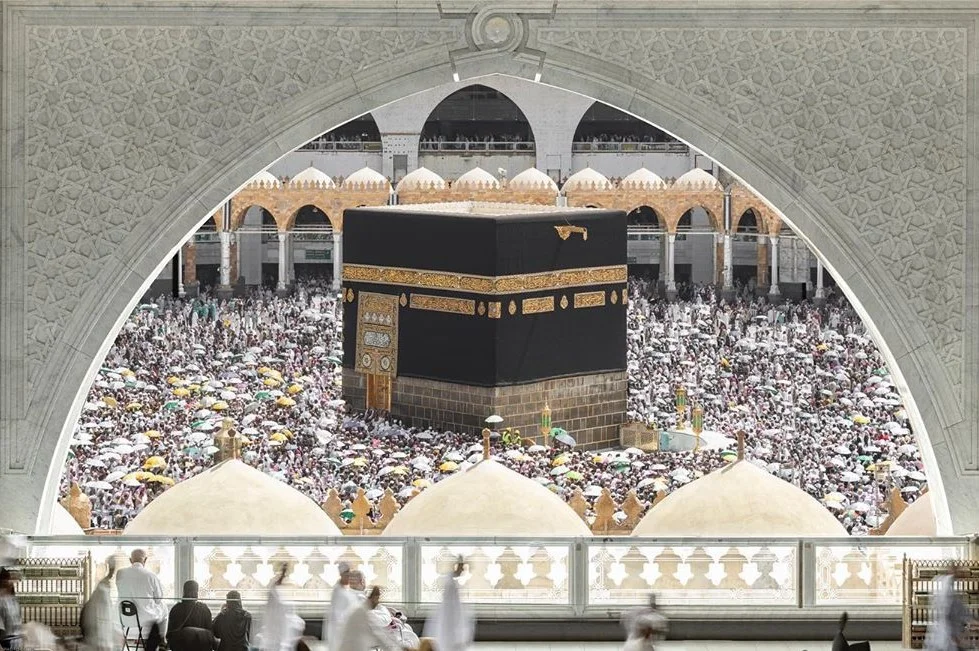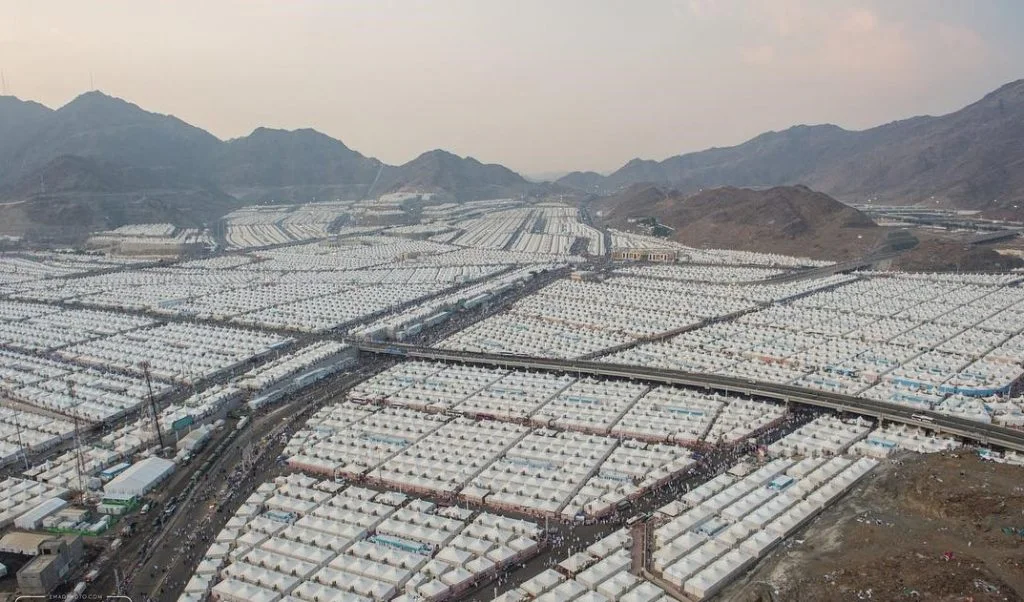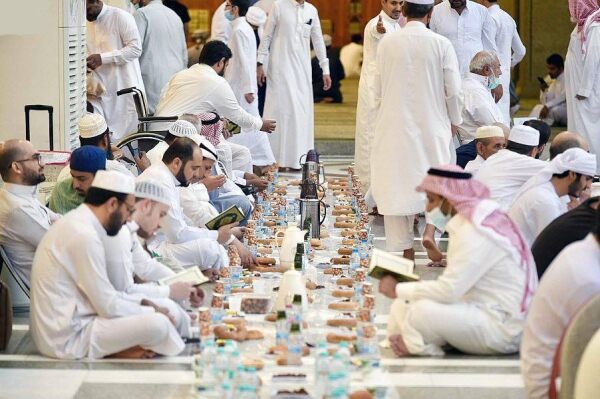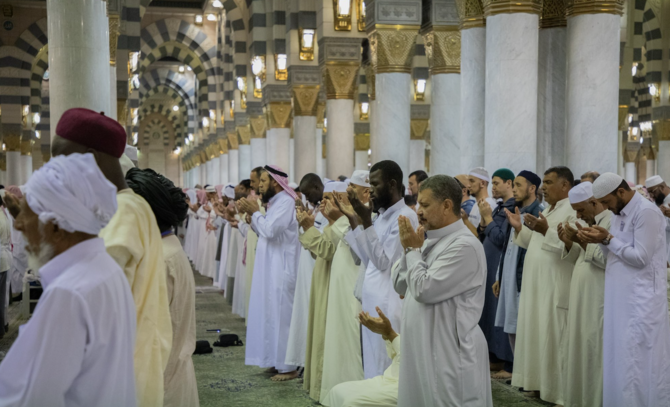Ramadan Umrah Package 2025
Package Includes












⛰️ Mazarat ( Sightseeing ) in Makkah, ( Mount Thawr, Arafat Square, Mina, Muzdalifah, Jabal Noor)
⛰️ Mazarat ( Sightseeing ) in Madinah ( Uhud, Masjed Qiblatayn, 7 Masjeds, Masjed Quba )
🌹 City of Taif visit ( Depends on extra free day availability in the program )






$1000 deposit is required at registration. Rest of the balance due date is 30 days prior to departure.
You can make your payment as follows:
Zelle
JILANTRAVELERS
Bank Deposit
Chase
Account #
Routing # 021202337
For Wire Transfer
Chase
Account #
Routing # 02102337
Write check
Make your checks payable to
Package Prices
Quad
Room PriceTriple
Room PriceDouble
Room PriceSingle
Room PriceNote: Subject to availability at the time of reservation.
Reservation Form

Umrah literally means visit. In religious terminology, it means to visit Baytullah (house of Allah) in ihram and to make sa’y (going between Safa and Marwa).
Umrah is a virtuous ibadah (worship) indicated in the 196th Ayah of Surah Al-Baqarah ‘’And complete the Hajj and Umrah …’’ According to the Hanafi and Maliki madhhabs (schools) performing Umrah once in a lifetime is muakkad Sunnah and Fardh according to Shafii and Hanbali madhhabs.
The Arkan (pillars) of Umrah are wearing ihram, making tawaf, sa’y and shaving (or trimming) the hair.
Hadhrat Qatada (Radhiyallahu Anhu) says, ‘’I asked Anas (Radhiyallahu Anhu) how many times Rasûlullâh (Sallallâhu Alayhi Wa Sallam) performed Umrah to which he replied four.
The occasion in which Muslims left Madinah and were prevented from entering Makkah and making Tawaf, which resulted in signing the Treaty of Hudaybiyah without performing the Umrah.
The Umrah they made in the 7th year of Hijrah to make up the missed Umrah.
The Umrah that he intended to perform in Jirana, while distributing the booty of Hunayn.
The Umrah that he performed together with Hajj at the farewell Hajj.
Hadhrat Qatada (Radhiyallahu Anhu) asked Anas (Radhiyallahu Anhu) how many times Rasûlullâh (Sallallâhu Alayhi Wa Sallam) performed Hajj to which he replied once at the time of farewell Hajj.
As Rasûlullâh (Sallallâhu Alayhi Wa Sallam) was going to perform his Umrah, he said to Aisha (Radhiyallahu Anhu): “There is reward for you as much as your tiredness and what you spend.” (Hajj and Umrah Guide, Fazilet Publishing)
Abu Dhar (Radhiyallahu Anhu) narrated that Rasûlullâh (Sallallâhu Alayhi Wa Sallam) said: “Dawud (Alayhis Salam) said, ‘O my Rabb! What is the reward for your servants who visit your House?’ Allah Ta’ala said: “Every visitor has a right when a visit is made, O Dawud! I promise that I will give them afiyah (well being) in this world, and forgive them when they come to Me.”

HAJJ (PILGRIMAGE):
Hajj is one of the pillars of Islam. It is performed both financially and bodily. It became Fardh (compulsory) in the ninth year of Hijrah, and that year Rasulullah (Sallalahu Alayhi Wa Sallam) appointed Hazrat Abu Bakr (Radiyallahu Anhu) as the deputy of the Hajj organization. Rasulullah (Sallalahu Alayhi Wa Sallam) performed his Hajj in the following year.
It is Fard Al-Ayn (compulsory on each individual) to perform Hajj once in one’s lifetime for a person who meets the preconditions of Hajj. If a Muslim can afford to undertake Hajj financially but his health doesn’t allow him to fulfill it until the end of his life, then such a person should send someone else as his wakil (deputy) for Hajj on his behalf.
Rasulullah (Sallalahu Alayhi Wa Sallam) said: “Islam is based on five pillars: Kalimah Shahadah which is to bear witness that there is none worthy of worship but Allah, and that Muhammad (Sallalahu Alayhi Wa Sallam) is His servant and prophet, Salah, Zakah, Sawm (fasting) in Ramadan, and to go for Hajj.”
THE BENEFITS AND WISDOM OF HAJJ:
The servant of Allah Ta’ala humbles himself before Allah and his servants.
It is on opportunity to offer one’s shukr (thanks) to Allah Ta’ala for having financial and bodily blessings. The Holy Ka’bah gives comfort to the souls. Hajj disciplines the nafs (lower-self) and cleanses it.
Muslims with different colors, races, and languages gather and form bonds of brotherhood with each other.
Muslims remember and renew their covenant and faith every time saluting the hajr al-aswad (black stone).
Muslims visit and see the places where Islam rose and spread. They remember and reflect on the struggle Rasulullah (Sallalahu Alayhi Wa Sallam) and his esteemed companions went through for the sake of Islam.
Dressing up in white ihram (consecration) is the symbol of setting off to the journey to akhirah (hereafter), rising from the grave as wrapped up in a white shroud (kafan) and going to the plains of mahshar.
Hajj leaves many happy memories to be recollected throughout one’s life.

THE EXCELLENCE OF RAMADÂN AL-SHARÎF
Rasûlullâh (sallallâhu alayhi wa sallam) said:
“Whoever attends a gathering of Dhikr (remembrance of Allah), Allah Ta‘âlâ writes one Thawâb (merit) of Ibâdah for each step he takes (while going to and coming from that gathering) and he will be together with me under the Arsh al-Â’la (The Great Throne) on the Day of Qiyâmah.”
“Whoever continues to attend the congregation (of Salâh) in the month of Ramadân, Allah Ta‘âlâ gives him one city made of light (in paradise) for every Rak‘ah he has performed.”
“Whoever shows kindness to his parents as much as he can, Allah Ta‘âlâ treats him with mercy, and I become his guarantor.”
Whoever meets the need of a Muslim in the month of Ramadân, Allah Ta‘âlâ meets a thousand needs of his. Whoever gives Sadaqah (charity) to a poor person with children and a family, Allah Ta‘âlâ credits him one million rewards, erases one million of his sins, and elevates his degree in one million-fold.
Hadrat Anas (radiyallâhu anhu) reported that Rasûlullâh (sallallâhu alayhi wa sallam) said: “Whoever moves forward (comes out of his house) to meet his fellow Muslim brother’s need, Allah Ta‘âlâ writes for him seventy rewards and erases seventy of his sins for each of his steps until he returns (to his home).” (Nuzhah al-Majâlis)
When Ramadân al-Sharîf began, Rasûlullâh (sallallâhu alayhi wa sallam) would free the captives and give everything that people asked for. Whoever performs virtuous and righteous deeds in this month will fulfil numerous virtuous and righteous deeds throughout the whole year.
A person who spends the month of Ramadân al-Sharîf idly without any form of worship will also spend the whole year like that. The faithful should discipline themselves spiritually so that they are intent and eager to achieve many good deeds in this blessed month of Ramadân al-Sharîf.
At the time of Iftar (time to break fast), Rasûlullâh (sallâllahu alayhi wa sallam) used to read the following Du‘â: “Dhahabaz-zama’u wabtallatil ‘uruqu wa thabatal ajru inshâAllâhu.”
Performing the Tarâwîh Salâh and Khatim of Qur’ân (reciting the whole Qur’ân al-Karîm) are among the Sunnah al-Muakkadah (hardly ever missed by Rasûlullâh [sallallâhu alayhi wa sallam]). This will earn Muslims great benefits and rewards. May Allâh Ta‘âlâ enable us to fulfil these good deeds for the sake of His beloved (sallâllahu alayhi wa sallam). Âmîn. (Maktubat Imam Rabbânî, V.1, Letter 45)

20 RAK’AH TARAWIH IS SUNNAH MUAKKADAH
It is Sunnah Muakkadah upon every male and female to pray 20 Rak’ah Salat Tarawih after the Fard and Sunnah of Isha in the month of Ramadan. The Sahaba and Imam’s of schools of thought have performed this. Those who reject this are of the ones gone astray.
In the time of Rasulullah (s.a.w.), it was prayed with congregation only a few times. For he feared that it would become Fard upon the Ummah and that they will not be able to perform it. In the time of Hz. Omar, Osman and Ali, Salat Tarawih was prayed with congregation.
It has been recommended to pray Salat Tarawih with 2 Rak’ah intervals and after every 4 Rak’ah to sit for the time it takes to pray 4 Rak’ahs. If a person prays 4 Rak’ah without sitting after the first 2 Rak’ah then they will have prayed only 2 Rak’ah’s.
If a person who hasn’t prayed the Fard of Isha’ reaches the congregation while they are praying Tarawih, firstly they need to pray the Fard of Isha’ then they can follow the Imam. After praying the Witr with the Imam, they will then need to complete any Rak’ah’s they have missed of the Tarawih.
If the Tarawih is complete, it is acceptable to pray the Witr with the Imam only during Ramadan.
It is more virtuous to pray the Tarawih with Khatim (recitation of the whole Qur’an). If it is not possible to do so, then to read from Surah Fil (Alamtara…) to the last Surah of the Qur’an, which in total is 10 Surah’s in the first 10 Rak’ah, and then to recite the same for the last 10 Rak’ahs.
In Fatawa al Qazihan it is stated: The pious and devout perform the Khatim of the Qur’an every 10 days of Ramadan. Imam Abu Hanifa would recite 61 Khatim’s during Ramadan. 30 Khatim at night, 30 Khatim during the day and 1 Khatim in Salat Tarawih.
Rasulullah (s.a.w.) said: O Muslims who are oblige to obey Allah and follow His prophet! Indeed Allah has made the fasting of Ramadan Fart upon you. And I have made it Sunnah to pray Salat Tarawih at night. Whoever sincerely believes and hopes in the rewards of fasting during the day and praying Salat at night, they will be forgiven, they will be cleansed from sins as like having been born from their mothers.”

